Iran Denies Reports Of US Warnings Before Kerman Bombings
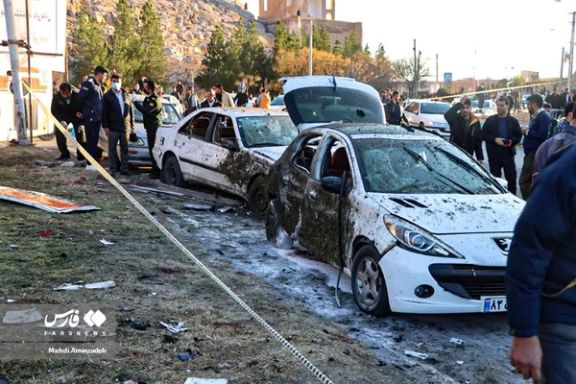
Iran has dismissed reports claiming the US warned Tehran prior to recent twin bombings by ISIS in Iran.

Iran has dismissed reports claiming the US warned Tehran prior to recent twin bombings by ISIS in Iran.
“If a security message was passed on by the US, it was intended to protect Washington from Iran’s response, especially after the Israeli war in Gaza,” IRNA quoted an Iranian security official as saying.
The Wall Street Journal reported on Thursday that the US had warned the Islamic Republic of the impending bombings which claimed the lives of 95 people in Kerman earlier this month.
In spite of the warning that Islamic State’s affiliate in Afghanistan, ISIS-Khorasan, known as ISIS-K, planned to commit the attacks at the commemoration ceremony of slain Qods Force commander Qassem Soleimani, Iran failed to prevent the deadly bombings, the report added.
Separately, Iran International has learned that the US passed the warning to Iran more than one week before the attack.
Speaking to Iran International, a US official said, “Prior to ISIS’ terrorist attack on January 3, 2024, in Kerman, Iran, the US Government provided Iran with a private warning that there was a terrorist threat within Iranian borders.
“The US Government followed a longstanding ‘duty to warn’ policy that has been implemented across administrations to warn governments against potential lethal threats. We provide these warnings in part because we do not want to see innocent lives lost in terror attacks.”
The attack was the deadliest since the birth of the Islamic Republic in 1979. Many Iranians questioned why Soleimani’s family members and top officials were absent from the memorial at his gravesite in Kerman, raising the validity of the US warning as to their absence.
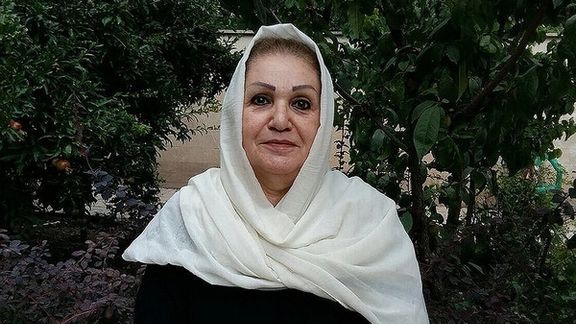
Iranian human rights activist Raheleh Rahemipour was taken to hospital on Thursday following a heart attack.
Rahemipour is one of the four political prisoners in the women’s ward of Evin who are over 70 years old. She was imprisoned in November to serve a five-year prison sentence, despite suffering from a brain tumor and other ailments.
Tehran’s Revolutionary Court headed by notorious Judge Abolqasem Salavati sentenced Rahemipour to six years in prison over such allegations as “propaganda against the government” and attempts to “disrupt national security.”
Her brother, Hossein Rahemipour, was also a political prisoner who was executed in 1984. His child, born in Evin prison, was never handed over to his family after his execution.
A group of 61 women political prisoners went on a hunger strike in the women’s ward of Evin on Thursday to protest the Islamic Republic’s ruthless execution spree, including the execution of Mohammad Ghobadlou.
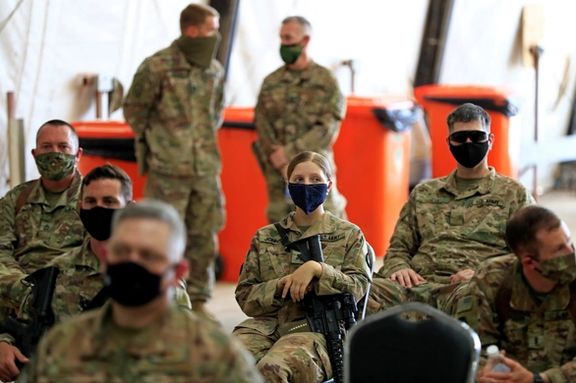
The Biden administration is set to move towards a reduced role for the US military in Iraq, amid continuing attacks by Iran proxies on American interests in the region.
In a statement published Thursday, secretary of defense Lloyd Austin confirmed that the US-Iraqi Higher Military Commission (HMC) will convene meetings in the “coming days” to discuss new ways of cooperation in the post-ISIS era.
The statement has been widely read as the beginning of the end of US military presence in Iraq, despite the Pentagon’s categorical rejection of that reading.
“Let me be clear, the HMC meeting is not a negotiation about the withdrawal of US forces from Iraq,” Pentagon’s deputy press secretary Sabrina Singh said in a briefing Thursday. “The United States and the coalition are in Iraq at the invitation of the Iraqi government to fight ISIS. The HMC will enable the transition to an enduring bilateral security partnership between the US and Iraq.”
The timing of the announcement has led many to believe it is related to the regional crisis following the Hamas’ attack on Israel and the Israeli onslaught on Gaza.
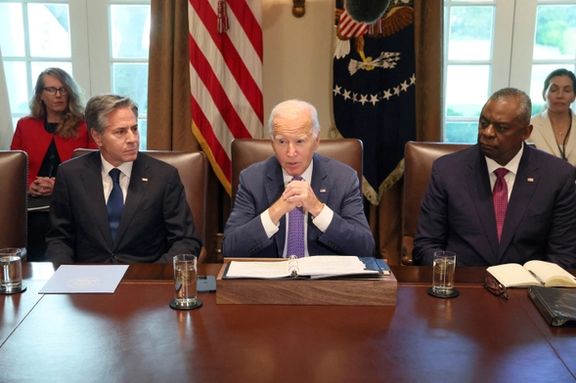
Since last October, American bases in Iraq and Syria have been targeted more than 150 times by Iran-backed groups, and Tehran has repeated its threats that the 'Resistance Front' will evict the US from the region. Shiite groups in Iraq supported by Iran have also intensified their calls for all foreign forces to leave the country.
It is hard to tell if that demand has forced the Pentagon announcement – or if it would be on the agenda during the coming HMC talks.
Austin’s statement lacks clarity and detail, which leaves it open to interpretation. It speaks of “transition”, “process”, “timeline”, and “evolving” relationship, all of which can point to a strategic shift from direct military presence to security cooperation. But any shift, according to the statement, would be contingent on “ISIS threat”, “operational requirements”, and the “capability” of Iraqi forces, which can always be used to justify continuous US military presence in Iraq.
The Iraqi party, however, seems to be clearer about its negotiation objectives.
The aim, according to a statement from Iraq’s foreign ministry, is to come up with a “clear timeline determining the duration of the presence of the international coalition advisors in Iraq, initiating a gradual and thoughtful reduction of their presence on Iraqi soil, concluding the military mission against [ISIS], and transitioning to comprehensive bilateral relations with coalition countries.”
The Iraqi parliament has voted to oust American forces from Iraq. But the Biden administration says it is yet to be asked to do so formally.
Any negotiation between the Iraqis and the Americans will be closely watched from Tehran – and by Assad and the Kurdish forces in the area. A full withdrawal, if it ever happens, would likely put the Iranian regime in a much stronger position than it already is in Iraq and Syria.
Earlier in the week, it was reported that the Biden administration may be considering a full withdrawal of American troops from Syria in 2024. That report was also swiftly rejected by the Pentagon as “erroneous.”
There are about 2,500 American troops in Iraq and about 900 in Syria. The numbers are small when compared to the numbers in the early years after the Bush-led invasion of Iraq. At its peak, there were almost 170,000 US forces on the ground in Iraq.
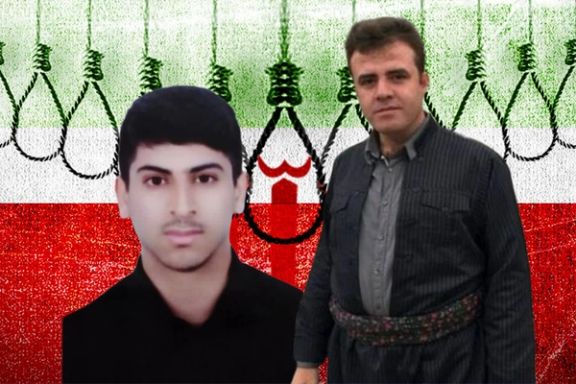
Two more political prisoners, Yousef Ahmadi and Ali Abidavi, have been sentenced to death amid Iran's ongoing killing spree.
The two are the latest victims of the government's crackdown on dissent following a record year in 2023 seeing 834 executions according to the United Nations, eight linked to the nationwide protests which began in 2022.
Ahmadi, originally sentenced in September by the Revolutionary Court of Sanandaj on charges of "corruption," saw his appeal denied, while Abidavi, along with his brother Hossein, received their verdict from the Revolutionary Court of Mahshahr.
Ahmadi, along with co-defendants Mohammad Karimi, Baset Karimi, and Mohammad Feizi, were arrested in May 2020 in Baneh, Kordestan province, under accusations of collaborating with an opposition party. Reports indicate they were subjected to severe torture to extract confessions, which led to Ahmadi's death sentence and varying prison terms for the others.
Simultaneously, Ali and Hossein Abidavi faced the judiciary in Mahshahr, accused of attacking a Basij base four years ago. Ali Abidavi received the death penalty, while his brother was sentenced to 13 years behind bars.
This week, the UN's experts slammed the execution of Mohammad Ghobadlou, a 23-year-old protester with a long-term psychosocial disability.
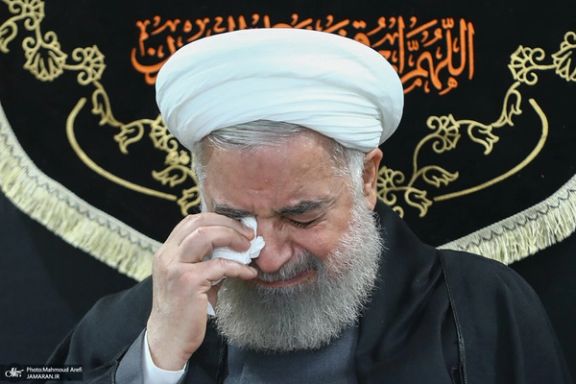
A day after former president Hassan Rouhani was barred from running in the upcoming March 1 election, the Iranian public remained indifferent to his situation.
Iranian hardliners controlling a conspicuous vetting mechanism told the former president that he was barred for running for re-election at Assembly of experts that will elect the next Supreme Leader after Ali Khamenei’s death.
Most Iranian analysts attributed the indifference to Rouhani's political positions and performance during his presidency, especially in his second term from 2017-2021.
Iranian social media researcher Mohammad Rahbari has found that based on Google Trends metrics application, during the past day, the majority of Iran-based queries on the Google search engine were related to the execution of 23-year-old political prisoner Mohammad Ghobadlou. The number of searches about Rouhani were significantly less than those about the rising dollar rate, Ghobadlou and even Raisi.
Meanwhile, Iran International TV analyst Mehdi Mahdavi Azad argued that the people could not care less about Rouhani's disqualification as he has disappointed Iranians after over 20 million of them voted for him in 2013 and 2017 by taking side with Khamenei and his hardline supporters.
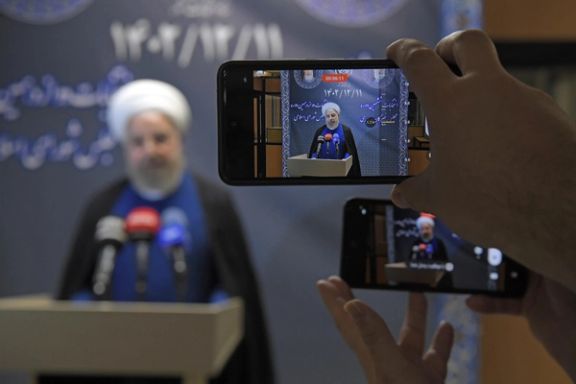
A similar viewpoint was expressed by investigative reporter Mojtaba Pourmohsen in a report on Iran International TV on January 25. Pourmohsen further suggested that Rouhani's disqualification signaled Khamenei's intention to nominate his son, Mojtaba, as the next Supreme Leader.
Ali Hossein Ghazizadeh, another Iran International analyst, attributed the people’s indifference to Rouhani's disqualification to his inability to address to the people's demands during his presidency. Ghazizadeh said that Rouhani led the people to believe that change was impossible in the Islamic Republic, regardless of who was the head of the executive branch of the government. He added that even those who support the regime no longer believe in the possibility of any positive change in Iran by voting in the elections.
Morad Veisi a senior Iran analyst told Iran International TV that the development marks the end of the moderate camp in Iran which was led by Rouhani.
In another analytical comment, Iran-based reformist commentator Abbas Abdi suggested that Rouhani’s disqualification was more about what he could do in the future than about his past actions or inactions. Abdi was likely referring to Rouhani's potential role in determining Iran's next leader at the Assembly of Experts.
Other Iranian analysts questioned what Rouhani had accomplished during his 24 years as a member of the Assembly of Experts, the body tasked with choosing the Islamic Republic's next leader. They also raised concerns about his continued presence within the Assembly, where most members were political rivals or even adversaries.
Rasoul Montajabnia, the Secretary-General of the Reformist Jomhouriat Party, expressed concern that Rouhani's absence could lead to low voter turnout in the upcoming elections on March 1, as even those who had intended to participate might be discouraged after Rouhani's disqualification.
Meanwhile, an adviser to former Expediency Council Chief Akbar Hashemi Rafsanjani, Gholam Ali Rajai said that Rouhani's disqualification will entail other developments. Rajai said that conservative figure and former intelligence operative and Justice Minister Mostafa Pourmohammadi has also been disqualified and barred from taking part as an Assembly of Experts election candidate. He said this was a source for concern, but did not explain why.
Former Intelligence Minister Mahmoud Alavi, another former intelligence chief, was also barred from both Majles and Assembly of Experts elections, leading observers to speculate that political purification might be occurring within Iran's intelligence community.
Some analysts speculated that an unlikely decree by Khamenei could reinstate Rouhani in the Assembly of Experts election, but a defeat in that election would be a significant setback for the former President.
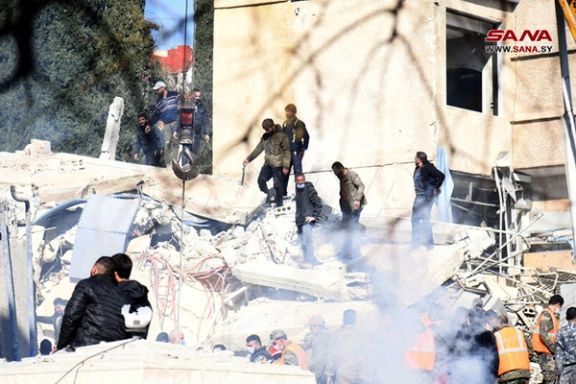
An Iranian MP says Tehran will retaliate against Israel's recent attack that claimed the lives of five Islamic Revolutionary Guard Corps (IRGC) commanders in Syria.
Fadahossein Maleki, a member of the National Security Committee of the Parliament, emphasized on Thursday that “the fact that military commanders exercise prudence does not mean they don’t want to respond.”
The incident occurred on January 20, when a residential building in Damascus's Mazzeh neighborhood was targeted in what Syria's state-run SANA news agency described as an Israeli airstrike. The IRGC confirmed that four personnel initially lost their lives, identified as Hojatollah Omidvar, Ali Aqazadeh, Hossein Mohammadi, and Saeed Karimi. Later, a fifth officer, Mohammad-Amin Samadi, succumbed to injuries sustained in the attack.
The recent assault follows a pattern of Israeli strikes targeting Iranian interests in the region. In December, Razi Mousavi, responsible for logistical and military coordination for the IRGC in Syria, was killed in a similar attack near Damascus.
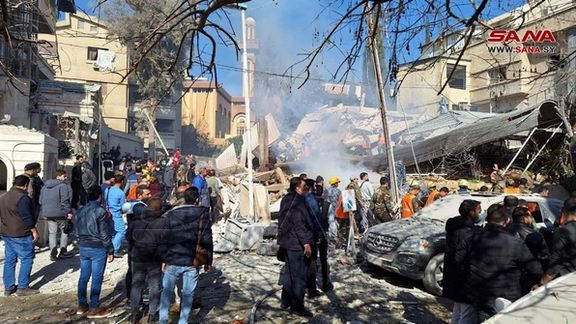
The Iranian government has repeatedly issued threats against Israel, holding it responsible for the deaths of IRGC commanders and personnel in the region. Despite these threats, Tehran has refrained from directly attacking Israel, though continues to support its proxies surrounding Israel. Since October 7 when Iran-backed Hamas in Gaza declared war on Israel, support from the likes of the Iran-backed Houthis in Yemen and Hezbollah in Lebanon swiftly followed.
Israel, while refraining from commenting on specific strikes, has acknowledged conducting numerous sorties against Iran-backed forces and facilities in Syria over the past decade. The recent escalation coincides with heightened tensions stemming from the Israel-Hamas conflict that erupted in October.
Israel has been targeting Syria, particularly affecting international airports in Damascus and Aleppo, potentially disrupting the transfer of weapons from Iran to its proxies in Gaza and along Israel's borders. Iran's involvement in supporting Syrian President Bashar al-Assad throughout the 12-year civil war has led to a significant deployment of Iranian fighters, with many members of the Revolutionary Guard being killed in the conflict.